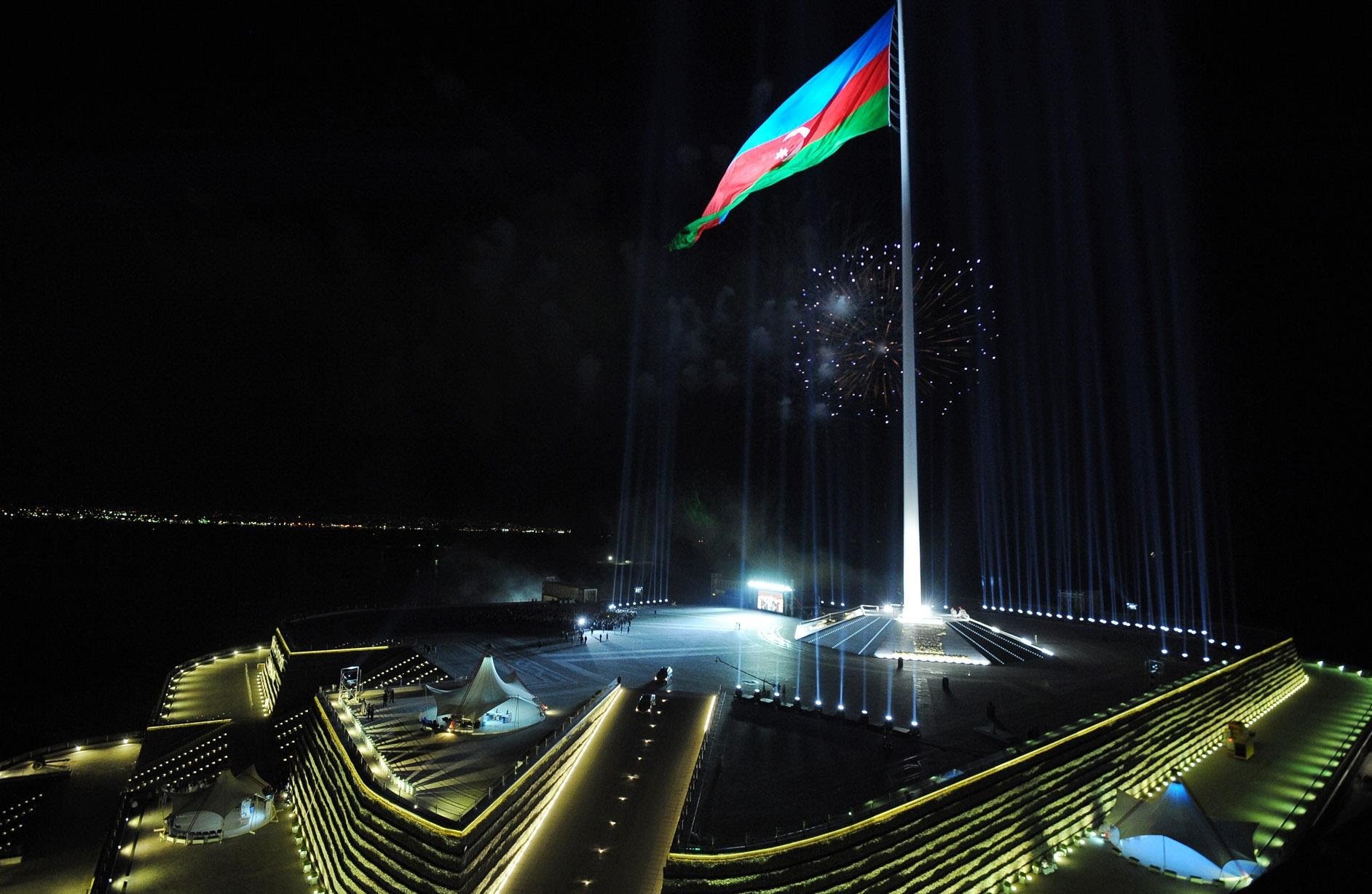The Embassy of the Republic of Azerbaijan to the United States held a ceremony on December 28th to celebrate the Azerbaijani holiday "Solidarity Day." The event was attended by several high-level officials from both Azerbaijan and the U.S.
Solidarity Day occurs every December 31st and marks the anniversary of the reunification of several million Azerbaijanis held apart by borders between the Soviet Union and Iran. On this day, it is traditional for Azerbaijanis to voice messages of solidarity and unity, despite residing in countries throughout the world, including including Azerbaijan itself, Iran, Turkey, Russia, the U.S., Germany, France, Ukraine and the United Kingdom. The holiday is also celebrated by Azerbaijan’s diplomatic missions throughout the world in a bid to promote further independence and unanimity of the nation.
Roots of the Holiday
As of today, 10 million Azerbaijanis reside in the Republic of Azerbaijan. In Iran, Azerbaijan's southern neighbor, one can find roughly 30 million Azerbaijanis while another 10 million Azerbaijanis live elsewhere throughout the world. Ethnic Azerbaijanis were split between Azerbaijan and Iran as a result of two consecutive wars between Russia and Iran in the early and mid-19th century, dividing up the Azerbaijani land between the battling sides. More than a century later, on New Year's Eve in 1989, thousands of Azerbaijanis residing in Nakchivan crossed the border with Iran to meet their compatriots and reunite with their relatives.
This event, which occurred shortly before the Soviet Union's collapse, symbolized solidarity and reunification for millions of Azerbaijanis scattered around the world. On December 16, 1991, then Azerbaijani President Heydar Aliyev announced that December 31st will from then on be celebrated as the Day of Solidarity.
In his address to the first Congress of World Azerbaijanis, President Heydar Aliyev underscored the significance of interaction between the government and the Azerbaijanis abroad.
“Our task, the task of the Azerbaijan state, consists of displaying every possible care and attention for Azerbaijanis living worldwide. We should learn about their lives and achieve further developments in relations between our state and the Azerbaijan communities in different countries. The Azerbaijanis living abroad today should communicate more closely with independent Azerbaijan. These are the major conditions for ensuring the unity and solidarity of World Azerbaijanis.”







 The number of evacuees from flooded areas in Kazakhstan has reached 97,852 people, including about 32,856 children since March 27.
The number of evacuees from flooded areas in Kazakhstan has reached 97,852 people, including about 32,856 children since March 27.
 The Islamic holy month of fasting, Ramadan comes to an end this week with the celebration of a joyous festival called Eid (meaning “festival” in Ar...
The Islamic holy month of fasting, Ramadan comes to an end this week with the celebration of a joyous festival called Eid (meaning “festival” in Ar...
 Iran's senior military leaders described the drone and missile attack on Israel on April 14 night as “successful".
Iran's senior military leaders described the drone and missile attack on Israel on April 14 night as “successful".
 Iranian President Ebrahim Raisi warned Israel that it would face a "real and extensive" response if it makes any "mistake" following Tehran’s missi...
Iranian President Ebrahim Raisi warned Israel that it would face a "real and extensive" response if it makes any "mistake" following Tehran’s missi...



